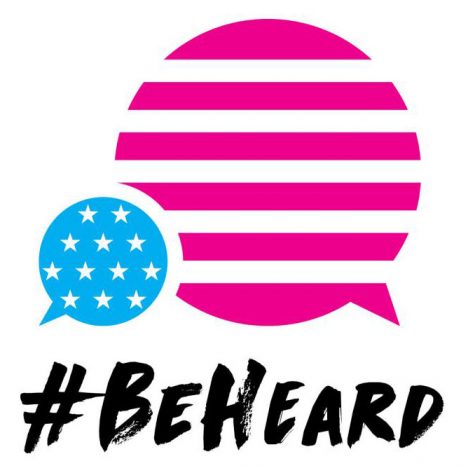Working to #BeHeard
January 9, 2018
Scholastic journalists all over the state are working to pass a bill into state law which will better protect their first amendment rights.
Indiana state representative Ed Clere co-authored bill HB 1130, also known as the New Voices Bill. New Voices was designed to bring freedom to scholastic journalists who are under censorship. New Voices died in the Senate this past April after Jennifer McCormick, the State Superintendent of Public Instruction, opposed the bill.
“Journalism is under attack,”Clere said. “It’s always easier to portray things in a positive light, but we can’t stop there.”
The 1988 Hazelwood School District v. Kuhlmeier Supreme court decision gave administrators the right to refuse to sponsor students spee
ch that was “inconsistent with the shared values of a civilized social order,” according to legal case brief site oyez.com.
“Some scholastic journalists don’t even attempt to write the tougher topics,” Clere said. “Students know there is no point because of the implicit censorship that came with the Hazelwood decision.”
Implicit censorship put boundaries on student publications as far as topics that are allowed and top
ics that are not. Some administrators use this in the form of prior review, a practice in which administrators view publications before they are sent to print. The Hazelwood decision gave administrators who wish to use it editorial control.
“Just because a person is under 18, doesn’t mean they shouldn’t have freedom of speech,” Blotter adviser Christina Faulkner said. “Restricting scholastic journalists doesn’t help in the long ru
n; it hurts them and journalism.”

Plainfield High School’s newspaper, The Shakedown, was under fire by adminstrators last month. The newspaper staff covered teen relationships and dating, including polls about the longetivity of sexting, date ideas and cheesy pick-up lines. These appeared next to more serious pieces like a Q&A with a police officer on dating violence and those who have faced problems with their peers as students who identify with the LGTB community. The principal placed the newspaper adviser under disciplinary action for publishing and dispersing these topics.
“The controversy was very mild,” Clere said. “When I got a hold of the issue, I was expecting to see something that pushed the envelope. These topics [covered in The Shakedown] have been mischaracterized. What matters is the treatment of these topics. Students need this information, because drug use and sexual activity is a reality in their world.”
The Supreme Court Hazelwood decision has been discredited and is seen as excessive level of control by every journalism education organization, according to newvoicesus.com.
“New Voices is enormous for not only for students journalists, but the implications are reaching to civil society,” Clere said. “We need more talented, well-trained journalists that understand journalism as a cornerstone of democracy.”
Through Twitter, newvoicesus.com, and other social media platforms, scholastic journalists use their voice and testify to their own experiences in implicit censorship.
The New Voices bill will go up for discussion again in January.
“Student journalists, parents, advisers and educators need to talk to their state representatives,” Faulkner said. “Students need the authentic opprotunity to practice their freedom of expression without censorship before going out into real world of journalism.”

